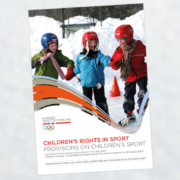Dr. Chet’s Health Memos
 If it’s in the health news today, I’ll be writing about it as soon as I read the research, both old and new. With my email Health Memos, you’ll know more about making lifestyle choices that will help you get and keep good health. These free, concise updates on health are emailed to subscribers twice a week. Subscribe today and get a free MP3, in English or Spanish, of Dr. Chet’s Top Ten Tips—Small Changes for a Healthier Life.
If it’s in the health news today, I’ll be writing about it as soon as I read the research, both old and new. With my email Health Memos, you’ll know more about making lifestyle choices that will help you get and keep good health. These free, concise updates on health are emailed to subscribers twice a week. Subscribe today and get a free MP3, in English or Spanish, of Dr. Chet’s Top Ten Tips—Small Changes for a Healthier Life.
Does Exercise Intensity Affect Obesity?
As I wrote on Thursday, exercise intensity did not seem to impact mortality, or death rate, in a large group of older women. Of course, living longer is important to many people. Could exercise intensity provide benefits as it relates to reducing the staggering 40% rate of obesity in the U.S.? Maybe. Let’s look at […]
Is the 10,000-Steps Goal a Myth?
One of the things many people do for fitness is try to get 10,000 steps per day. Researchers recently wanted to know whether that many steps really gives a person any health advantage, because the concept of 10,000 steps per day wasn’t based on any real science—it came from a Japanese company who invented a […]
Readers Report on MSG
Of the dozens of responses to the Memos on MSG, most readers reported the types of symptoms commonly attributed to MSG along with some interesting physical responses. Several people responded that they had always heard to avoid MSG, so they have. I thought one particular comment was interesting: upon looking at the foods that contain […]
Sports for Kids: A Better Way
I hope you took the time to read the Norwegian Children’s Rights in Sport document; if not, please do, especially the Plan for Development. The focus is on making sure the child is safe and secure no matter their abilities. The goal is for all kids to develop the joy of learning sports by having […]
An Alternative Path for Athletic Kids
At the last Winter Olympic Games, which country won more medals than any other? The U.S.? China? Russia? No, it was Norway—a record 39 medals. How does a country with about five million people outperform countries such as Germany with 80 million, Canada with 35 million, or the U.S. with 325 million? As you might […]
Kids and Sports in America
In my travels, I stay in a lot of hotels and speak in many venues from convention centers to hotel ballrooms. No matter the season, I can count on there being a team of kids staying in the hotel. I don’t mean professional teams; I mean kids’ teams from baseball and softball, gymnastics, volleyball, and […]
Nutrition Education: The Best Solution
The scientific paper about nutrition education programs from South America was an opinion piece derived from a student’s dissertation defense. It addressed nutrition labels in Brazil: the labels were too focused on the caloric content instead of the ingredient information. The paper gives an example of two foods that have 97 calories but are vastly […]
Improving Nutrition in South America
One of the problems today with public nutrition education programs is that there’s an important element that would prefer it not be done. In fact, food manufacturers are doing all they can to avoid any approach that may impact sales of high-fat, high-sodium, high-sugar, and highly processed food. I get it—they want to sell as […]
How Can We Improve Nutrition and Public Health?
I recently read a couple of articles, one from a newspaper and another from a journal, that talked about South American countries and how their governments should deal with the obesity epidemic and how some are approaching this issue. There may be lessons we can use here for us in the U.S. and other parts […]
The Bottom Line on Sugary Drinks and Cancer
The question is simple: do we avoid all sugary drinks, including fruit juices? The best I can come up with is to withhold judgment and don’t get excited about it for now. Let’s take a look at what the concerns of the researchers were and then my concerns. Researchers’ Concerns The first is that the […]










